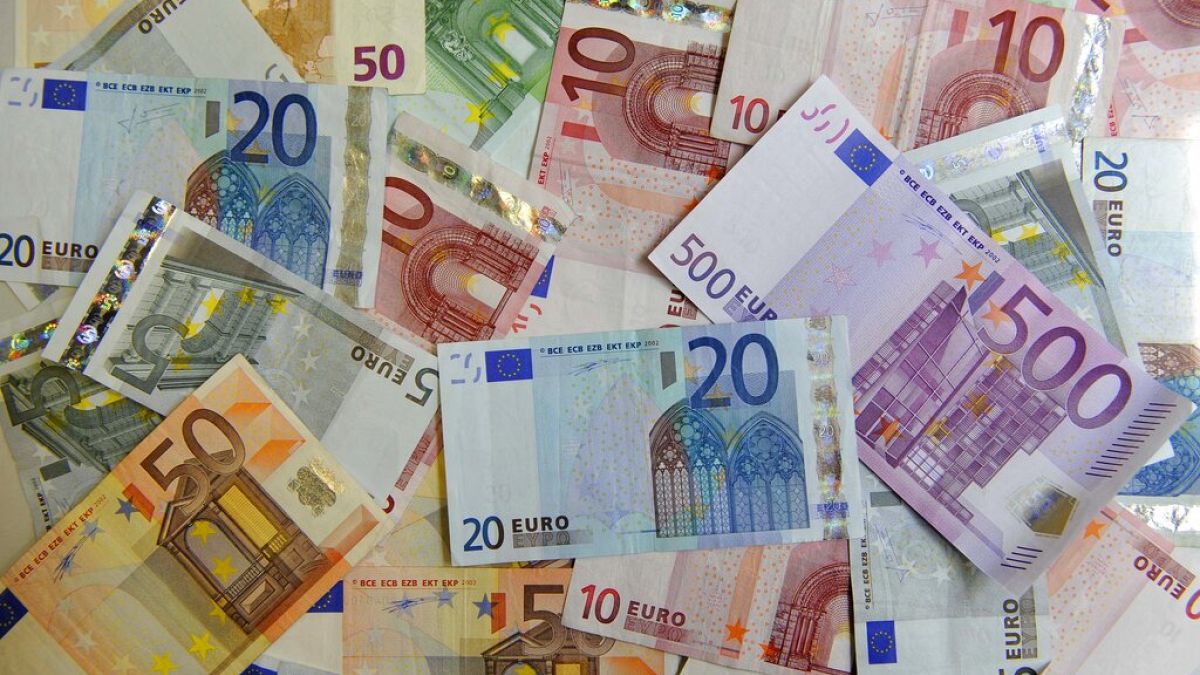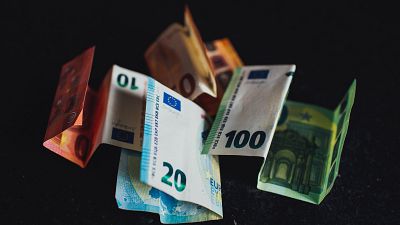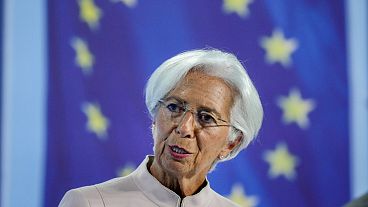The EU's central bank is looking to shift from the windows and bridges that decorated the euro since its inception
Euro banknotes are set to be adorned with either rivers and birds, or images of European culture, as the European Central Bank (ECB) whittles down options for the first redesign of the currency since its inception.
One of the two themes will replace the existing images on euro banknotes, which represent doorways, windows and bridges in architectural styles ranging from classical to modernist, in place since the new currency was introduced in 2002.
“Both of the chosen themes share a common thread of connecting Europe and Europeans," ECB President Christine Lagarde said in a statement, "in keeping with our goal of making banknotes more relatable to people of all ages and backgrounds.”
Other ideas floated in a July consultation — to display images of hands, or more abstract ideas such as the future or "our Europe, ourselves," have now been rejected after surveys over the summer failed to muster enthusiasm.
The ECB doesn't appear to have polled on more traditional banknote designs, such as identifiable buildings or historical figures, perhaps for fear that this would cause squabbles among the currency area's 20 member states over exactly who or what should be depicted.
Once detailed motifs are worked up the two options will again be put to the European public, the ECB says — but the new banknotes won't be in your wallet until a few years after final decisions are taken in 2026.
As digital payments become more popular — in part prompted by the pandemic — cash use is on a downward trend, and according to the ECB represented just 59% of payments in physical points of sale like shops and restaurants, down from 79% in 2016.
With some lawmakers worried by that trend, the European Commission in June proposed new laws to protect the status of cash as legal tender, while also touting plans for a new digital form of the euro.



